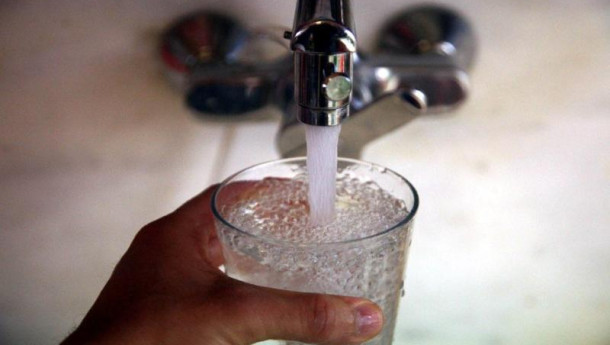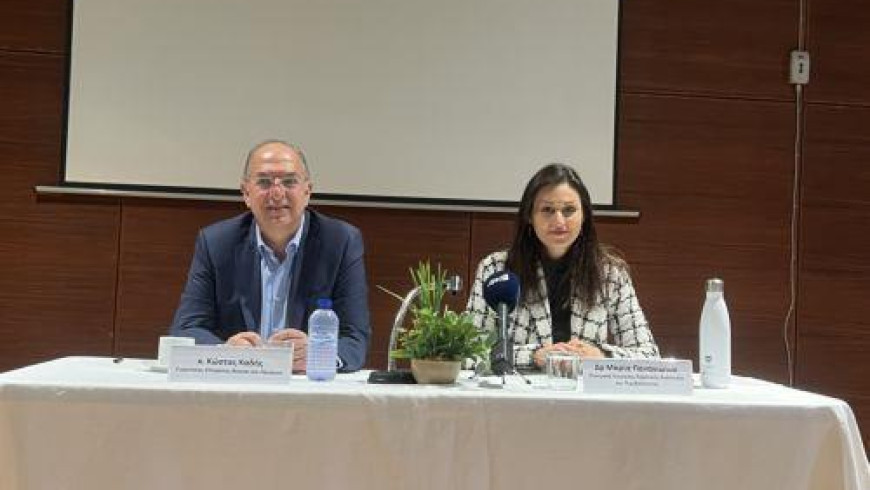
Cyprus ranks as the poorest country in water in the European Union, permanent secretary of the Ministry of Agriculture, Rural Development and Environment, Andreas Gregoriou, said on Tuesday, noting that water needs are multiple times the capacity of the country’s natural water resources, which depend solely on precipitation.
In his address at a Press Conference for the 17th Energy Saving Exhibition "Savenergy" and the 14th Exhibition for Water and Environmental Technologies, "Envirotec", Gregoriou said that “we are in a semi-arid region that suffers from frequent and extended droughts and a permanent state of water scarcity”. He also said climate change has already affected the region with significantly reduced rainfall, an over a 40% reduction in surface water runoff.
He added that taking into account the long-term problem of water scarcity in Cyprus and the frequent and gradually increasing droughts due to climate change, a sustainable strategy for water resources is being promoted in the context of an integrated environmental policy. Gregoriou said that the aim was to ensure the fullest possible coverage of water needs for domestic, agricultural, industrial, environmental and other uses, to the maximum extent possible, through the optimal and sustainable use of conventional and non-conventional water resources and ensuring the quality and protection of water resources and the environment.
In the framework of the policy for the sustainable development, protection and management of water resources, he added, “important projects” were being implemented in the areas of water supply, irrigation, drainage and recycled water.
The main axis of this policy is the implementation of the European Acquis and, in particular, the implementation of the Water Framework Directive, the Floods Directive, the Urban Wastewater Treatment Directive, etc, he said.
He added that, in order to address the problem and improve the reliability of water sources for domestic and irrigation uses, the optimal use of non-conventional water resources, such as desalination and water reuse, is being promoted.
He said that, water reuse, which has been practiced for over 20 years in Cyprus, provides significant protection against drought and reduces the dependence of water supply on weather conditions while was also contributing to the country's strategic goal of climate change adaptation and the prevention of risks, in the management of the water balance and in circular economy.
On behalf of the Energy Minister, head of the Industry and Technology Service of the Ministry in question, Christos Photiades, said that, the share of energy from Renewable Energy Sources (RES) in the total gross final energy consumption of the Republic of Cyprus in 2021 amounted to 18.42%, explaining that, as far as the heating-cooling sector is concerned, the percentage of RES in 2021 amounted to 41.34%, exceeding the target set in the National Energy and Climate Plan.
With reference to the electricity generation sector, the RES share, in 2021, reached 14.84%, marking an increase of 2.8% compared to 2020, he said. He added that in 2021, a large increase of 59% was recorded in the production of electricity from photovoltaic systems, due to the installation of a large number of systems for both commercial and private consumption purposes.
Photiades also said that, in 2021, “the goals of our National Energy and Climate Plan have also been achieved, in terms of saving energy during final use”.
He added that, for the seven-year period 2021-2027, the Ministry of Energy secured in total, €370 million from European and national resources, to lead Cyprus to the green transition.
President of the Board of Directors of the electricity authority (EAC), Despina Panayiotou Theodosiou, said in her speech that, the utility “intensifies its efforts, claiming its rightful role in the development of RES projects, thereby contributing to the achievement of Cyprus' goals for 2030, while creating the conditions for a potential reduction in the price of electricity”.
To date, she noted, the EAC's electricity generation is mainly based on liquid fuels, it is however, already implementing its plan for the installation of photovoltaics, in the context of the wider policy for the production of electricity from RES.
The event was also addressed by the head of the Cyprus Employers and Industrialists Federation (OEB), Antonis Antoniou, who referred to the importance of the two exhibitions in promoting knowledge about technologies and services as regards saving energy and protecting the environment.














 3287.99
3287.99 1275.09
1275.09
